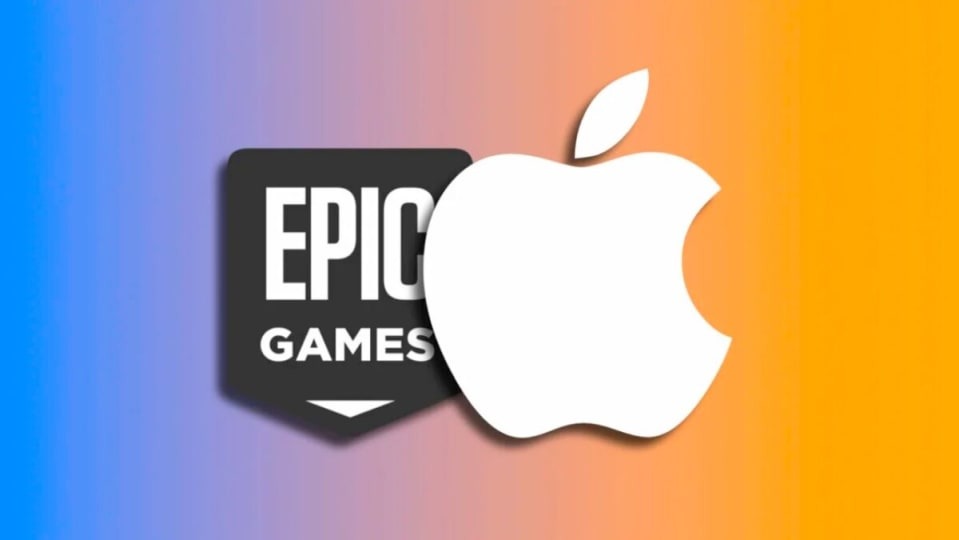The European Union (EU) has launched an investigation into Apple’s controversial decision to terminate Epic Games’ developer account, citing potential violations of three key digital market regulations: the Digital Markets Act (DMA), the Digital Services Act (DSA), and the Platform-to-Business Regulation (P2B). This investigation marks a significant development in the ongoing legal battle between the tech giant and the gaming company, which has drawn attention to the issue of app store monopolies and the control that companies like Apple exert over their digital ecosystems.
The Digital Markets Act and Its Implications for Apple
At the heart of the EU’s investigation is the Digital Markets Act (DMA), a set of rules designed to promote fair competition and innovation in the digital space. The DMA requires large tech companies, such as Apple, to allow third-party app stores on their devices, giving developers more options for distributing their apps and potentially reducing the commission fees they pay to the platform holder.
Epic Games, the creator of the hugely popular game Fortnite, had expressed its desire to launch its own app store on Apple devices, bypassing the company’s App Store and its 30% commission on in-app purchases. However, Apple terminated Epic’s developer account, claiming that the gaming company had violated the terms of its App Store agreement.
The EU’s investigation will seek to determine whether Apple’s actions constitute a violation of the DMA and whether the company’s tight control over its App Store amounts to anticompetitive behavior. If found in breach of the DMA, Apple could face significant fines and be forced to make changes to its App Store policies.

The Digital Services Act and Platform-to-Business Regulation
In addition to the DMA, the EU’s investigation will also examine whether Apple’s termination of Epic Games‘ developer account violates the Digital Services Act (DSA) and the Platform-to-Business Regulation (P2B). These regulations aim to create a more transparent and fair environment for businesses operating on digital platforms.
The DSA, in particular, seeks to establish a clear set of rules for online intermediaries, such as app stores, to ensure that they act responsibly and transparently in their dealings with businesses and consumers. The regulation also requires platforms to provide effective dispute resolution mechanisms and to be more transparent about their content moderation policies.
The Platform-to-Business Regulation, on the other hand, aims to create a level playing field for businesses that rely on online platforms to reach their customers. The regulation requires platforms to provide clear terms and conditions, as well as effective dispute resolution mechanisms, to businesses that use their services.
By investigating Apple’s actions through the lens of these regulations, the EU is seeking to determine whether the company has acted fairly and transparently in its dealings with Epic Games and whether its termination of the gaming company’s developer account was justified.
The Ongoing Battle Between Apple and Epic Games
The EU’s investigation is just the latest development in the ongoing legal battle between Apple and Epic Games, which began in August 2020 when Epic introduced its own in-app payment system in Fortnite, bypassing Apple’s App Store and its 30% commission on in-app purchases. In response, Apple removed Fortnite from its App Store and terminated Epic’s developer account, prompting the gaming company to file a lawsuit against Apple, alleging anticompetitive behavior.
Since then, the battle has escalated, with Epic Games filing similar lawsuits against Apple in other jurisdictions, including the United States, the United Kingdom, and Australia. The gaming company has also launched a public relations campaign, called “Free Fortnite,” to rally support for its cause and put pressure on Apple to change its App Store policies.
Apple, for its part, has defended its App Store policies, arguing that they are necessary to ensure the safety and security of its users and to maintain the quality of the apps available on its platform. The company has also accused Epic Games of deliberately violating its App Store agreement in order to generate publicity and support for its lawsuit.
The Implications of the EU’s Investigation
The outcome of the EU’s investigation could have significant implications for the future of the app store model and the relationship between platform holders and developers. If the EU finds that Apple has violated its digital market regulations, it could force the company to make changes to its App Store policies, potentially opening up the platform to more competition and giving developers more freedom to distribute their apps and manage their own payment systems.
Such a ruling could also set a precedent for other jurisdictions, including the United States, where similar legal battles are being waged between platform holders and developers. It could also embolden other developers to challenge the dominance of companies like Apple and Google in the app store market, leading to a more diverse and competitive landscape.
On the other hand, if the EU’s investigation finds in favor of Apple, it could strengthen the company’s position and reinforce the status quo in the app store market. This could make it more difficult for developers to challenge the dominance of platform holders and could lead to a further consolidation of power in the hands of a few large tech companies.

The Future of the App Store Model
Regardless of the outcome of the EU’s investigation, the ongoing battle between Apple and Epic Games has brought renewed attention to the issue of app store monopolies and the need for greater competition and transparency in the digital market. As more developers and regulators challenge the dominance of companies like Apple and Google, it is likely that we will see further changes to the app store model in the coming years.
Some experts have suggested that the future of the app store model may lie in a more open and decentralized approach, where developers have more freedom to distribute their apps and manage their own payment systems. Others have argued for a more regulated approach, where platform holders are subject to greater oversight and are required to provide fair and transparent terms to developers.
Whatever the future holds, it is clear that the app store model is at a crossroads, and that the outcome of the EU’s investigation and other legal battles will have a significant impact on the direction that it takes. As consumers and businesses increasingly rely on digital platforms for their daily lives and livelihoods, it is more important than ever that these platforms operate in a fair, transparent, and competitive manner.
Conclusion
The EU’s investigation into Apple’s termination of Epic Games’ developer account is a significant development in the ongoing battle over app store monopolies and the control that platform holders exert over their digital ecosystems. By examining Apple’s actions through the lens of key digital market regulations, including the Digital Markets Act, the Digital Services Act, and the Platform-to-Business Regulation, the EU is seeking to determine whether the company has acted fairly and transparently in its dealings with Epic Games and whether its termination of the gaming company’s developer account was justified.
The outcome of this investigation could have significant implications for the future of the app store model and the relationship between platform holders and developers. It could also set a precedent for other jurisdictions and embolden other developers to challenge the dominance of companies like Apple and Google in the app store market.
As the battle between Apple and Epic Games continues to unfold, it is clear that the stakes are high and that the future of the digital market hangs in the balance. Whatever the outcome of this investigation and other legal battles, it is essential that regulators and industry stakeholders work together to create a more fair, transparent, and competitive digital ecosystem that benefits consumers and businesses alike.
C










Add Comment